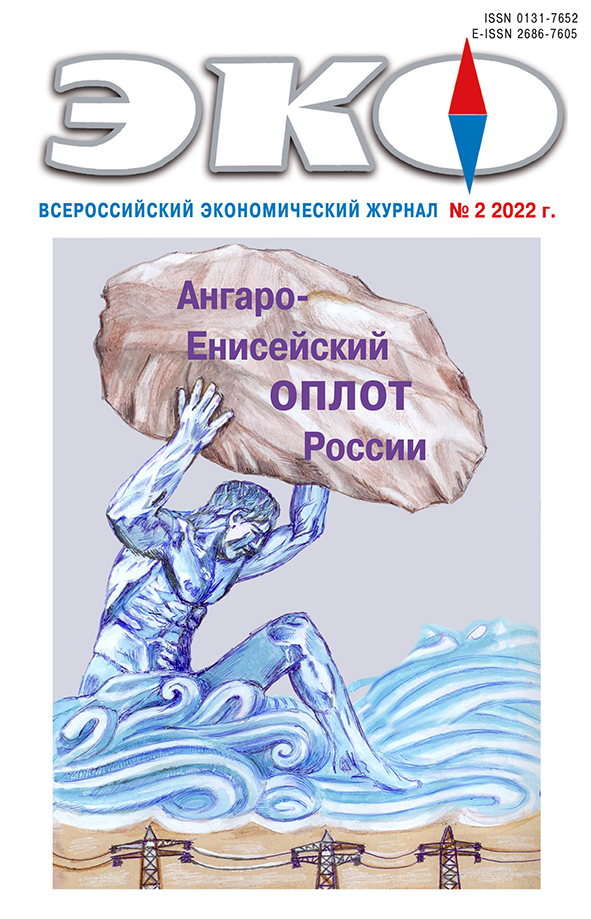Angaro-Yenisei Bulwark of Russia
Published 2022-02-03
How to Cite
1.
Усс А, Kryukov В, Nefedkin В, Krivorotov А. Yenisey Siberia – Combining yields for the Nation with Returns for Business. ECO [Internet]. 2022 Feb. 3 [cited 2026 Feb. 24];52(2):27-46. Available from: https://ecotrends.ru/index.php/eco/article/view/4381
Abstract
The traditional approach to national resources development in Asian Russia, which relies on setting up large-scale combined production and transportation entities (industrial enclaves), is incompatible with the contemporary socio-economic development model. Public law-based regulation of relations between resources users and the government, plus earmarked tax breaks for individual investors fail to create efficient incentives for extractive companies to get involved in developing the host regions’ economies and social infrastructure. The authors suggest an alternative approach using predominantly civil law mechanisms, notably multilateral concessions, to forge robust long-term ties among the key stakeholders. Applying this approach will, in the authors’ view, facilitate harmonization of interests of the key beneficiaries in resource extraction projects and serve as a driver for sustainable development for the regions involved.References
- Зубков К. И., Корепанов Н. С., Побережчиков И. В., Тулисов Е. С. Территориально-экономическое управление в России XVIII – начале XX века: Уральское горное управление / Отв. ред. Побережчиков И. В. Институт Истории и археологии УрО РАН. М.: Наука, 2008. 355 с.
- Криворотов А. К. Политика государства как фактор конкурентоспособности арктических регионов: методология исследования, опыт Норвегии и уроки для России / Отв. ред.д.э.н., проф. Ф. Д. Ларичкин. Апатиты: КНЦ РАН, 2015. 320 с.
- Криворотов А. К. Норвежское Заполярье: государственная политика и региональное развитие // ЭКО. 2017. № 8. С. 77–92.
- Крюков В. А., Нефёдкин В. И. Ключевые игроки в Арктике – от социалистических комбинатов к компаниям-лидерам устойчивого развития // Научные труды Вольного экономического общества России. 2021. Т. 228. № 2. С. 126–154.
- Новикова Е. В. Об Уставе Горном Российской империи и дальнейшем развитии горного законодательства в Российской Федерации // Аграрное и земельное право. 2007. № 9. C. 79–105.
- Усс А. В. Развитие Сибири: что делать, пока не закрылось «окно возможностей»: научное издание // ЭКО. 2015. № 2. С. 6–13.
- Устав Горный / В книге «Свод законов Российской Империи. Том Седьмой». Санкт-Петербург: Издание кодификационного отдела при Государственном Совете. 1893. 283 с.
- Al-Kasim Farouk. Managing Petroleum Resources. The “Norwegian Model” in a Broad Perspective. Oxford: OIES30. Oxford Institute for Energy Studies. 2006. 264 p.

